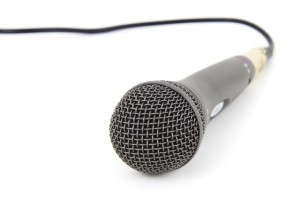5 tips in 5 minutes – making sure media interviews run to plan
 By Michelle
By Michelle
 Media interviews are a much-vaunted, much-loved staple of any PR programme worth its salt, but, like anything in PR, they can go horribly wrong. But even when an interview isn’t a complete car crash, as any PR pro will know, a lot of interviews can end up being merely a so-so experience – instead of being a sound-bite stuffed, charming-the-pants-off-journalists result that we all hope for.
Media interviews are a much-vaunted, much-loved staple of any PR programme worth its salt, but, like anything in PR, they can go horribly wrong. But even when an interview isn’t a complete car crash, as any PR pro will know, a lot of interviews can end up being merely a so-so experience – instead of being a sound-bite stuffed, charming-the-pants-off-journalists result that we all hope for.
It’s important to remember that every spokesperson you have is different. Some will have been media trained up the eyeballs over a long career in the C-Suite, others will be doing their first ever interview having never knowingly spoken to a journalist in their life. It’s also important to remember that interviews are arranged for any number of reasons, and so the approach you and your spokesperson take will differ accordingly. It might be a ten-minute chat on the phone to grab a few quotes for a feature, or it might be an in-depth hour-long profile piece.
Whatever the reason and however experienced your spokesperson might be – ensuring that you prepare the spokesperson thoroughly and give them all the information and context they need to feel confident, will pay dividends down the line. It goes without saying that providing a briefing note with valuable background on journalists, publications and talking points is essential. But often, more important that simply sending a document, is personally pre-briefing your spokesperson. Your spokesperson is highly likely to be a very busy individual, fully digesting all the info in a briefing document may not be high on their list of priorities.
So if nothing else, grab that five minutes before your spokesperson even utters a word and remember to reiterate the basics – here are just a few to get started:
- Speak slow – remind spokespeople not to hurry or speak quickly, and to make a conscious effort to slow down – ensuring that the journalist can catch/record comments
- Press pause – hand in hand with speaking too fast, is not giving the journalist a chance to speak, tell your spokesperson to pause when they’ve finished speaking to allow the journalist to ask questions
- Check in – periodically, it's useful for spokespeople to check with the journalist that they understand the comments they are making
- Listen closely – remind spokespeople to really listen to the question a journalist poses and do their best to answer it specifically rather than too generally
- Not knowing is OK – it’s fine not to know something, your spokesperson shouldn’t be afraid to decline to answer a question if they can’t answer, it’s far better than fudging it!